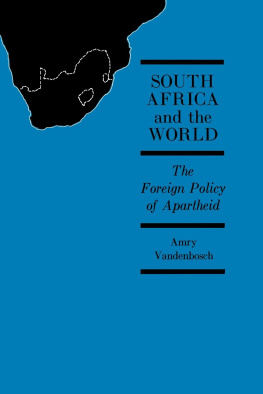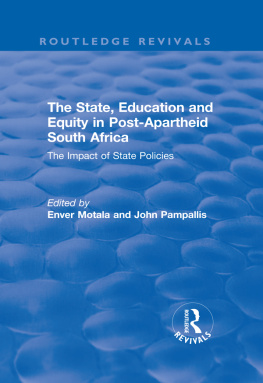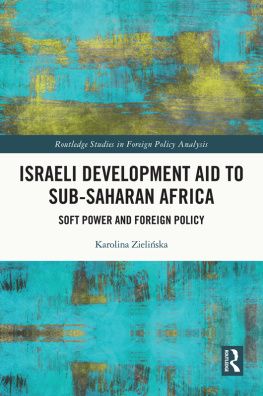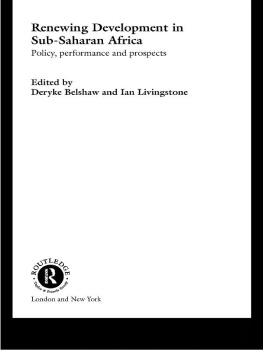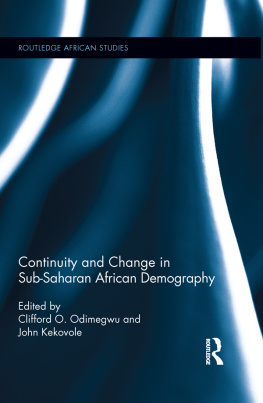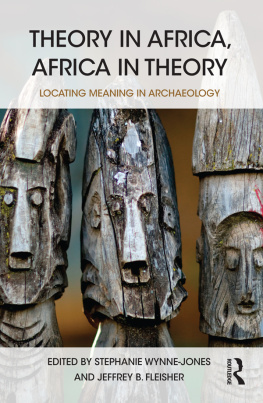WE COME AS MEMBERS OF THE SUPERIOR RACE
We Come as Members of the Superior Race
Distortions and Education Policy Discourse in Sub-Saharan Africa
Obed Mfum-Mensah
First published in 2021 by
Berghahn Books
www.berghahnbooks.com
2021 Obed Mfum-Mensah
All rights reserved. Except for the quotation of short passages for the purposes of criticism and review, no part of this book may be reproduced in any form or by any means, electronic or mechanical, including photocopying, recording, or any information storage and retrieval system now known or to be invented, without written permission of the publisher.
Library of Congress Cataloging-in-Publication Data
Names: Mfum-Mensah, Obed, 1965 author.
Title: We come as members of the superior race : distortions and education policy discourse in Sub-Saharan Africa / Obed Mfum-Mensah.
Description: New York : Berghahn Books, 2021. | Includes bibliographical references and index. | Summary: Westerners have long represented Africans as backwards, primitive, and unintelligent, distortions which have opened the door for American philanthropies to push their own education agendas in Africa. We Come as Members of a Superior Race discusses the origin and history of these dangerous stereotypes and western infantilization of African societies, exploring how their legacy continues to inform contemporary educational and development discourses.
Identifiers: LCCN 2020018896 (print) | LCCN 2020018897 (ebook) |
ISBN 9781789209136 (hardback) | ISBN 9781789209143 (ebook)
Subjects: LCSH: EducationSocial aspectsAfrica, Sub-Saharan. | Education and stateAfrica, Sub-Saharan. | Educational assistance Africa, Sub-Saharan. | Stereotypes (Social psychology) Africa, Sub-Saharan.
Classification: LCC LC191.8.A42 M48 2021 (print) | LCC LC191.8.A42 (ebook) | DDC 306.430967dc23
LC record available at https://lccn.loc.gov/2020018896
LC ebook record available at https://lccn.loc.gov/2020018897
British Library Cataloguing in Publication Data
A catalogue record for this book is available from the British Library
ISBN 978-1-78920-913-6 hardback
ISBN 978-1-78920-914-3 ebook
Acknowledgements
In writing this book I have benefited greatly from the assistance of my institution, Messiah University. The institution provided much of the needed financial support for the numerous trips I made overseas. To my academic mentors, I thank you for nudging a curious and radical thinking that could not be suppressed. To my longstanding professional colleagues and friends: Professor Henry Danso and Dr. Theresa Mannah-Blankson provided dimension to some of the issues in the book.
It is so refreshing to have a dear sister as your schoolmate and professional colleague. Dr. Martha Donkor is such a generous person who dedicated much of her time to help shape the book. Her thoroughness and constructive criticism challenged my thinking and prompted me to move beyond my use of conventional analysis to the important issues discussed in the book.
While there were some setbacks and disappointments in the last phase of the data collection in Kenya in July and August of 2019 that nearly derailed the project, I have a wonderful and understanding family that support me tremendously. To Roseline, Louisa, and Nadine, I owe you a debt of gratitude for loving me unconditionally and creating the environment for me to pursue my goal to complete this book project.
February 2020
Introduction
Dirty Gossip, Transnational Policy Borrowing and Lending, and Education

Dirty gossip? Yes, this book analyzes the complicated ways Western distortions and stereotypes about Africa shaped education policy and practice in sub-Saharan Africa (SSA). I use the terms West and Western deliberately in the book to represent European and American forces and entities that have engaged in all sorts of activities on the African continent. While Liveson Tatira refers to Western distortions and stereotypes about Africa as Old World Novels, I prefer to use the term dirty gossip, which the Ugandan philosopher Okot pBitek refers to as the Western distortions and stereotypes about Africa (pBitek 2011: 11; Tatira 2015). As a sociological construct, dirty gossip outlines the hegemonic processes used by the West to exclude Africans from colonial and postcolonial discourse (pBitek 2011: 11). The hegemonic processes expose the subtleties of race relations between Europeans and Americans (West) and Africans (and other indigenous populations), which aimed to promote white racial superiority. As a framework on race relations, dirty gossip reveals the complicated strategies and processes used by Europeans to misrepresent African societies to institutionalize racism, white superiority, and Western exploitation of African people and people of African descent. A major objective of Western dirty gossip was to infantilize Africans and position Europeans (and Western societies) in trusteeship positions to justify forced conversion and proselytization, racism, colonialism, imperialism, and exploitation, and to extract material benefit from Africas resources. Underneath European misrepresentations about Africa is the goal to invalidate the role played by African societies in the global geopolitical processes, development discourse, and knowledge production. Through dirty gossip, Europeans delegitimized Africas knowledge and epistemologies and African societies. PBitek notes that two tasks confront African scholars as they try to write about the dirty gossip perpetrated by Europeans about Africans:
First, to expose and destroy all false ideas about African peoples and culture that have been perpetuated by Western scholarship. Vague terms such as Tribe, Folk, Non-literate or even innocent-looking ones such as Developing, etc. must be subjected to critical analysis and thrown out or redefined to suit African interests. Second, the African scholar must endeavor to present the institutions of African people as they really are. Western scholars had to justify the colonial system, hence the need for the myth of the primitive. The African scholar has nothing of the sort to justify. But he [or she] must guard against overreacting in the face of the arrogance and insults of Western scholarship. (pBitek 2011: 34)
The advice here calls for scholarship that seeks to interrogate dirty gossip about African societies to be objective in outlining issues as they are and let readers draw conclusions.
Narratives about Africa should move beyond the single storyline that portrays the continent as a vast savannah of predominantly wild animals that compete with humans for survival. Africa transcends the images that international nongovernmental organizations portray about the poverty-stricken, sickly, and hungry humans dying of famine and starvation. The region is more than the tales about people dying of HIV/AIDS and Ebola, and where malaria kills a third of white expatriates that go there to help. Not every country in the region is embroiled in tribal wars. Africa is not just a crisis zone of inadequate social services, economic mismanagement, corrupt politicians, and deplorable education systems. This book therefore takes a critical approach to discuss how Western distortions and stereotypes about Africa shaped Western interventions in education policy discourse in sub-Saharan Africa.


